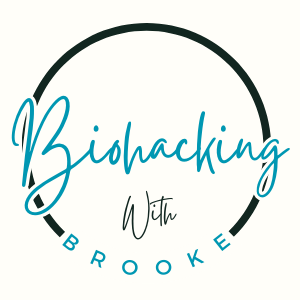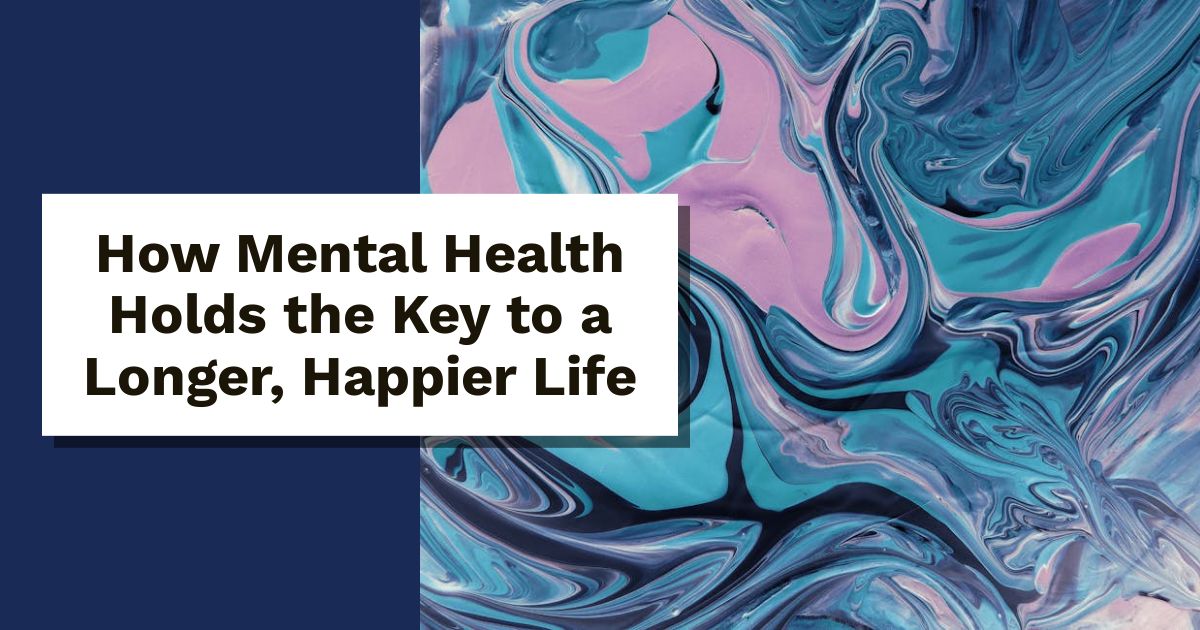Ever wonder if your state of mind could influence how long you live? Turns out, it can. Mental health isn’t just about feeling good—it’s tied to physical health and how your body ages. As biohacking grows in popularity, people are asking: can improving your mindset really add years to your life? The connection runs deep, and understanding it could change how you approach your well-being.
The Science Behind Mental Health and Longevity
Understanding the connection between mental health and longevity requires a look into various biological processes. Hormones, inflammation, and neurotransmitters all play a role in how our mental state can influence not just how we feel, but how long we live.
Hormones and Stress
Stress can feel overwhelming, but it’s the hormones unleashed during stressful moments that might lead to more significant concerns over time. When you’re stressed, your body pumps out cortisol, often termed the “stress hormone.” Elevated levels of cortisol can wreak havoc on your health, leading to issues like:
- Increased Blood Pressure: Chronic stress keeps the heart working harder than it should.
- Weakened Immune System: Constant cortisol can reduce your body’s ability to fight off infections.
- Accelerated Aging: Studies link stress hormones to cellular degradation, which may shorten your lifespan (Stress-Induced Biological Aging: A Review).
Feeling stressed? Finding ways to manage that stress can benefit your overall health. Talk about a win-win!
Inflammation and Mental Health
Chronic inflammation is often dubbed the “silent killer.” But did you know that your mental health can influence inflammation levels in your body? When you experience depression or anxiety, your body often responds with an inflammatory response, leading to:
- Immune System Activation: This can cause your body to continuously fight what it perceives as threats, leading to exhaustion.
- Increased Risk of Disease: Research shows a clear link between inflammation and conditions such as heart disease and diabetes (Inflammation in Mental Disorders).
- Cognitive Decline: Inflammation can impact brain function, potentially hastening cognitive impairment.
By prioritizing your mental well-being, you can help reduce inflammation and potentially improve your overall longevity. What could be better than feeling good and living longer?
Neurotransmitters and Longevity
Neurotransmitters are more than just fancy chemical messengers; they’re crucial for your mood and overall health. They regulate everything from emotions to bodily functions. Here’s how they tie into longevity:
- Serotonin and Mood: Often called the “happy chemical,” serotonin helps regulate mood and is linked to feelings of well-being. Low levels can lead to depression, affecting your life span (Influence of Tryptophan and Serotonin on Mood).
- Dopamine and Motivation: This neurotransmitter can drive motivation and pleasure, making you want to engage in healthy activities. A lack of dopamine can lead to inactivity and contribute to shorter life spans.
- Connection to Aging: Changes in neurotransmitter levels have been documented as we age, affecting not just mental health but physical health too (Neurotransmitters: What they are, functions, and psychology).
Feeling a dip in your mood? Consider foods that boost neurotransmitter production, like bananas for dopamine and turkey for serotonin. It’s a simple way to help uplift your spirit and support your longevity!
The Role of Positivity and Mental Well-being
Positive mental health plays a crucial role in determining our longevity. Not only does an optimistic outlook improve your overall mood, but research also suggests it can add years to your life. Let’s break down the mechanics of positivity and its impact on longevity.
The Power of Optimism
Optimism isn’t just a feel-good habit; it significantly affects lifespan. Multiple studies highlight this connection, showing that optimistic individuals tend to live longer.
- A study published by the NIA found that optimism is linked to an extended lifespan and better well-being in older adults. Optimistic people were less likely to succumb to chronic illnesses. Read more about it here.
- Another study from Harvard revealed that women with higher levels of optimism had a greater chance of living beyond 90. This finding emphasizes how a positive outlook can defy age barriers (Harvard Gazette).
- The data even suggests that optimists may experience up to a 15% longer lifespan than pessimists. It’s as if your mindset can literally shift the gears of aging! You can check out this research here.
So, if you find yourself staring at a glass half empty, maybe it’s time to give that glass a refill!
Social Connections and Mental Health
Social relationships are like the safety net of life. They not only make us happy but also help us live longer. Studies affirm that the quality of our social connections plays a significant role in our mental health and longevity.
- According to research, strong relationships can enhance longevity by about 50%. Meaningful connections help buffer stress, promoting healthier lifestyle choices (Stanford Longevity).
- A study showed that the odds of mortality rise by 91% among those lacking social ties. That’s a staggering figure, indicating just how deadly isolation can be (NIH).
- Healthy connections not only nurture your spirit but also strengthen your immune system. Healthy relationships can facilitate recovery from diseases and shield you against ailments, underscoring their essential role in health (Better Health).
In summary, surrounding yourself with positive, uplifting people can be just what the doctor ordered for a longer life. So, why not reach out and strengthen those connections? Your future self will thank you!
Practical Strategies for Enhancing Mental Health
In the pursuit of longevity, mental health should not be overlooked. Practical strategies exist to enhance your mental well-being, and they can significantly impact how long and how well you live. Here, we’ll explore mindfulness, exercise, and nutrition—three pillars that support mental health and longevity.
Mindfulness and Meditation
Mindfulness isn’t just a buzzword; it’s a powerful tool in your mental wellness toolkit. Engaging in mindfulness practices, such as meditation, helps reduce stress and enhances your mental clarity.
Research shows that mindfulness can lead to better self-control and emotional regulation. It opens the door to greater resilience against anxiety and depression. Think of it like sharpening your mental axe. Why swing a blunt one when you can cut through stress effortlessly?
Here are some benefits of incorporating mindfulness into your daily routine:
- Stress Reduction: Mindfulness practices help lower cortisol levels, making you feel more at ease. For steps on how to begin, check this out: Benefits of Mindfulness.
- Enhanced Focus: Mindfulness trains your brain to focus on the present, improving concentration and productivity.
- Emotional Balance: Regular practice can help stabilize your emotions, providing a buffer against mood swings.
If you’re not sure where to start, try a simple mindfulness meditation for a few minutes each day. Your mind will thank you!
Exercise and Mental Health
Physical activity is a cornerstone of mental well-being. Exercise is like a magic potion for your mood. It releases endorphins—those feel-good chemicals that naturally improve happiness.
When you exercise, your body responds positively. Regular physical activity combats anxiety, reduces stress, and improves self-esteem. Here’s what makes exercise so effective:
- Boosts Mood: Studies indicate that even short bursts of exercise can elevate your overall mood (Exercise for Mental Health – PMC).
- Improves Sleep: Regular workouts can lead to better sleep quality, helping you wake up refreshed and ready to tackle the day.
- Encourages Social Interaction: Whether it’s a workout class or a friendly pick-up game, exercise builds connections, supporting both mental and emotional health.
Aim for at least 30 minutes of moderate activity most days. Whether it’s brisk walking, dancing, or hitting the gym, the key is to find what you enjoy!
Nutrition and Mental Well-being
What we eat can profoundly affect how we feel. Nutrition is often overlooked in mental health discussions, but it’s crucial for both mood and longevity. A well-balanced diet can lead to clearer thinking and better emotional regulation.
Consider these points when evaluating your diet:
- Balanced Eating: Consuming a variety of nutrients supports brain function. Diets rich in fruits, vegetables, lean proteins, and whole grains promote emotional well-being. For more insights, explore Eating Well for Mental Health.
- Sugar and Mood: High sugar intake can lead to mood swings and a greater risk of depression (Nutritional psychiatry). Aim to limit sugary snacks and processed foods.
- Hydration Matters: Keeping hydrated improves cognitive function and mood. Make water your go-to beverage!
Making small, simple changes to your diet can yield huge benefits for your mental health. Remember, you don’t need to overhaul everything at once—gradual changes can lead to lasting results.
The Biohacking Approach to Mental Health
Biohacking isn’t just for the body; it extends to the mind too. By tracking mental health metrics and using specific techniques, individuals can optimize their mental well-being. Let’s explore both aspects to see how they can contribute to a healthier, longer life.
Tracking Mental Health Metrics
Monitoring your mental health has never been easier. With the right tools and apps, you can track your mood, stress levels, and overall well-being. Here are some top picks to consider:
- BetterHelp: A leading platform for online therapy, offering personalized care.
- Sanvello: Focuses on self-care and includes mood tracking features.
- Daylio: A micro-diary app for tracking moods and activities without requiring extensive journaling.
- MindShift: An app designed to manage anxiety through various techniques.
These tools provide vital insights that can help you understand your mental state better. By regularly checking in with these apps, you can spot trends and triggers. For more information on the best mental health apps, check out this resource.
Biohacking Techniques for Stress Reduction
Stress is a common issue that can impact mental health significantly. Luckily, there are various biohacking methods to help you manage and reduce stress effectively. Here are some techniques to consider:
- Deep Breathing: Simple yet powerful. Inhale for four counts, hold, and exhale. It can help calm your mind.
- Cold Exposure: Cold showers or ice baths can awaken your senses and may reduce stress levels.
- Gratitude Journaling: Writing down what you’re thankful for shifts your focus away from stressors.
- Aromatherapy: Scents like lavender can create a calming environment and improve mental clarity.
- Mindfulness Meditation: Regular meditation fosters emotional resilience and helps reduce feelings of anxiety.
Incorporating these biohacks into your daily routine can make a tangible difference in your stress levels. For more detailed insights, check out this article on biohacking stress management.
By actively monitoring your mental health and applying effective techniques, you can take significant steps towards enhancing your overall well-being. So, what’s stopping you from getting started?
Conclusion
Mental health holds a significant key to longevity. Stress, inflammation, and mood all intertwine with our lifespan. By prioritizing your mental well-being, you can enhance not just how you feel today but also how you live tomorrow.
Embrace practices like mindfulness, exercise, and better nutrition. Each step you take toward a healthier mind contributes to a longer, happier life.
So, what will you do to boost your mental health today?
Brooke is a rock-climbing 🧗♀️, tennis-playing 🎾, biohacking 🧬 bookworm 📚 on a mission to unlock the secrets of health, longevity, and living life to the fullest 🌟. When she’s not scaling cliffs, hitting the courts, or testing out the latest hacks, you’ll find her nose in a book or adventuring with her four-legged best friend 🐕 by her side. With a knack for turning science into simple, actionable tips, Brooke’s writing is your guide to hacking your biology and living your best, most vibrant life!


